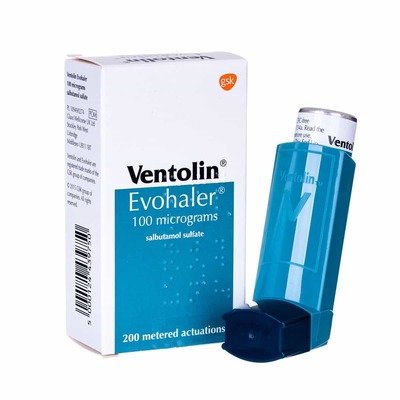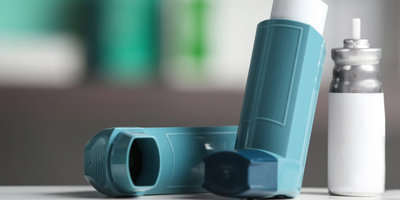
Does asthma affect children in the United Kingdom? The simple answer is yes! Matter of fact, asthma is currently the most common long-term medical health issue in children in the country. According to a recent report by England. NHS, roughly one in eleven children and young people in the UK currently suffer from this incurable lung disease.
As a parent, if your child has asthma, what are the most effective asthma treatment options to manage this condition? Continue reading to find answers to this asthma-related burning question.
Why is an asthma action plan important to manage your child’s condition?
Managing your child’s asthma the right way comes with tons of benefits. Well-managed asthma will allow your kid to engage in different kinds of activities without the asthma symptoms interfering.
To manage your kid’s asthma, the doctor or asthma nurse will prescribe you strong asthma medications and regular analysis. In addition, you and your child’s GP will have to work with an asthma action plan. This action plan is a written, individualized worksheet that reveals various steps to take to keep your child’s asthma symptoms at bay. This written action plan will also let you know exactly when to visit your healthcare, including what you need to do in case of any emergency.
Below are the importance of using the action plan alongside your GP and asthma nurse:
- It helps you understand what you can do daily to manage your child’s asthma symptoms.
- Action plan will help you understand how to identify the signals to know whether your child’s asthma is improving or not.
- What exactly should you do in case your child’s asthma is worsening? The asthma action plan is exactly what will give you the right information.
Here’s how to handle your asthma action plan correctly:
- Get a copy of the plan and pin it on the fridge or noticeboard.
- Take a picture of your child’s written asthma plan and get it emailed to your friends and family.
- For your kid’s safety in school, you need to make many copies and distribute them to the school’s administration, sport masters, and other relevant people.
- A screenshot of the action plan on your child’s phone will work if they are old enough.
Here are 5 best practices to manage your kid’s asthma symptoms
1. Understand how your child’s asthma medication works
The most effective way to manage asthma symptoms is by using the right asthma medication. As a parent, you can only help your kid’s asthma when you understand how the prescribed medications work. Of course, this also goes for anybody else that takes care of your kid when you’re not around.
- Why are these medications effective for your kid’s condition?
- What are the best ways to use these asthma medications for the best results?
- What are the standard dosages for these medications and when exactly should your child take or avoid these drugs?
You need the right answers to these questions to better help your kid’s asthma condition. As long as you know how the medications work for your child’s airways, you’ll be more focused on getting him or her to take the medicines at the right time.

reliever asthma inhalers
Your child’s GP will likely prescribe two different types of inhalers; preventer inhalers and reliever asthma inhalers. Both inhalers work differently. Reliever (blue) inhalers are effective when your child experiences asthma symptoms while preventer inhalers are important every day. With the written asthma action plan, you’ll better understand exactly when to administer the right asthma medication.
In case you have any issues with the written action plan, you need to make an appointment with your child’s GP or asthma nurse for clarity. If making an appointment is an issue at the time, another thing you can do is visit your local drugstore and ask a pharmacist about what you don’t understand regarding the medicines.
2. Try and get everything right regarding your child’s medications
The only way to avoid complications is to do everything right when administering your child’s medication. You need to understand the right inhaler technique and the right dosage. If there are any areas you need more clarity on, always speak to your GP or someone else that can keep your mind at rest?
3. Good habit matters when using the preventer medication
As earlier mentioned, preventer inhalers are designed for everyday use. For the best results, you need to teach your kid how to administer his/her preventer asthma medication every day, at specific times and in the same place. The more you remind him or her of this trick, the better for you. This trick will help establish a good habit. Even when you’re not around, your child will hardly forget about when and how to use the preventer medication. However, the best idea is to watch your kid or have someone watch as him/her uses their inhaler. This way, you can be sure they are doing it correctly.
4. Always go with the reliever asthma inhaler and spacer everywhere
You never can tell when your child will experience asthma symptoms. As such, it’s best to always go out with the reliever asthma inhaler. If possible, always go out with the spacer too to ensure your kid administers the MDI device the right way.
A phone reminder may help to better remember to always go out with the spacer and blue inhaler. If your child must go out alone, ensure to always remind them to go with the inhaler and spacer at all times. If your child is going out with their bag, ensure to keep the inhaler in the bag and let them understand the importance of taking it everywhere.
5. Does your child have a good asthma inhaler technique?
Checking your child’s inhaler technique is very important to be sure they’re using the asthma medication correctly. This is very important regardless of the type of inhaler that your child uses. If you’re unsure what the proper inhaler technique is, the best you can do is watch our YouTube videos online. Furthermore, for the best results, have your child’s inhaler technique checked regularly by your GP, local pharmacist, or asthma nurse.
Help your kid understand how to spot asthma symptoms
Spotting asthma symptoms is important to understand when to use the reliever asthma inhaler. Below is an approach that many parents find effective:
- If your kids enjoy stickers, you can consider using calendar to help them recognize symptoms quickly and in an exciting way.
- Motivating your kid will help them understand the importance if regularly using their inhaler. It also help them avoid triggers that could complicate their condition.
- Building your child’s confidence in using this sticker/calendar approach will help them better u understand their asthma.
- Practical is important to present how the calendar works to the GP. It allows the doctor to understand how your kid’s asthma is.
Asthma review is important
Asthma review is important. It allows the doctor or asthma nurse to access your kid’s asthma condition and identify whether or not they’re making progress.
But when is the right time to go for a review?
- Once a year — The standard for every asthma sufferer is to at least visit the hospital for review once in a year.
- For kids that’s where my experiencing asthma symptoms, the best thing is to schedule an appointment quickly. You’ll find help with the action plan.
- You should also go for asthma reviews at critical times in the year. For instance, you need to visit your GP if your child is about starting a new school year or ending a session.
Smoking won’t help your child’s condition
Do you or anyone else in your family often smokes? If yes, you should understand that smoking won’t help you manage your child’s asthma the right way. Matter of fact, the asthma medication will fail to work correctly, especially when your kid get exposed to smoke from cigarette.
That said, you need to do all you can to keep smokers away from your child. You should also talk to your youngster about why it’s dangerous for them to smoke or be in an environment where smokers live.
Check your kid’s weight regularly
Is your kid overweight? If yes, your asthma nurse or doctor will be in the best position to help your child lose weight. Your GP understand exactly what to do to help your child shed weight healthily and correctly. In most cases, they may also refer your kid to a dietitian for effective results
According to studies, overweight or obese kids have higher tendency to have asthma. If the obesity isn’t taken care of quickly, these kids are at a high risk of having more asthma symptoms.
Furthermore, obese kids are at a very high risk of experiencing asthma attacks, especially fatal ones. They may need extra asthma medication to keep the symptoms in control. That’s not all; being obese might also affect how your kid’s lung function and develop.
How to deal with asthma triggers
Not all asthma triggers can be avoided. For instance, it’s pretty hard for your child to avoid triggers, such as pollution, cold weather, and pollen. In this case, the beat you can do is help your kids prevent their airways from becoming too sensitive and inflamed. Here’s where the need for them to take their preventer and reliever asthma inhalers at the right time comes into the scene.
How to identify your child’s triggers
- First important step is to keep a record of all symptoms and triggers that your child experiences every time.
- Consider visiting your GP or an asthma nurse to seek assistance on how to identify potential triggers.
The most important thing is to identify the major triggers. With time, you can always identify others. As soon as you know all these triggers, you need slight adjustments to better control the symptoms.
Does your kid uses contemporary therapies? If yes, how sure are you of their effectiveness? If ineffective, it’s not advisable to jump to another therapy. If you don’t know what to do, a visit to your doctor will give you a better idea. Instead of contemporary therapies, your doctor will advise you on other safer treatment options for your kid.














